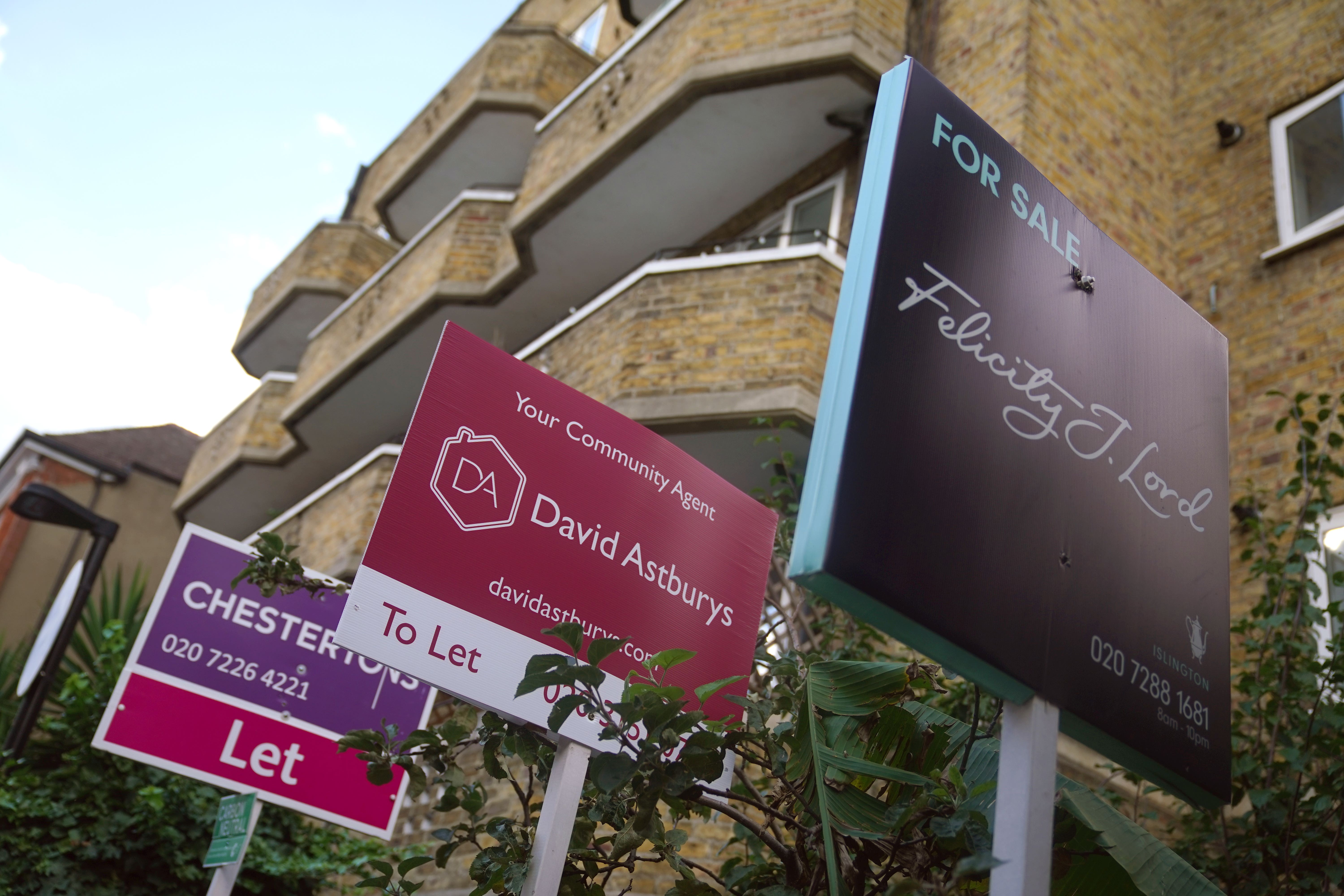Tax cuts to help new homebuyers clear first Commons hurdle
MPs voted 288 to 152, a majority of 136, to give the Stamp Duty Land Tax (Reduction) Bill a second reading.

Your support helps us to tell the story
From reproductive rights to climate change to Big Tech, The Independent is on the ground when the story is developing. Whether it's investigating the financials of Elon Musk's pro-Trump PAC or producing our latest documentary, 'The A Word', which shines a light on the American women fighting for reproductive rights, we know how important it is to parse out the facts from the messaging.
At such a critical moment in US history, we need reporters on the ground. Your donation allows us to keep sending journalists to speak to both sides of the story.
The Independent is trusted by Americans across the entire political spectrum. And unlike many other quality news outlets, we choose not to lock Americans out of our reporting and analysis with paywalls. We believe quality journalism should be available to everyone, paid for by those who can afford it.
Your support makes all the difference.Proposals aimed at making it easier for first-time buyers to get onto the housing ladder have cleared their first Commons hurdle, but MPs are doubtful they will return for further scrutiny.
MPs voted 288 to 152, a majority of 136, to give the Stamp Duty Land Tax (Reduction) Bill a second reading.
But some questioned whether the Bill would survive Rishi Sunak’s coronation as Tory leader, with Labour and the Lib Dems suggesting a U-turn may await the legislation in the near future.
The Bill is one of the few measures which survived the bonfire of Liz Truss’s mini-budget following the economic turmoil it caused, alongside the repeal of the national insurance rise.
These cuts to stamp duty will mean that an estimated 43% of transactions each year will pay absolutely no stamp duty whatsoever
It would increase the threshold for not paying stamp duty from properties worth £125,000 to those worth £250,000.
Treasury minister Felicity Buchan told the Commons the Bill will also expand on the “generosity” of the stamp duty holiday during the Covid-19 pandemic “to ensure that those purchasing their first home pay no stamp duty on purchases up to £425,000”.
She added: “The maximum purchase value for which first-time buyers can claim the relief has also been increased from £500,000 to £625,000.
“These cuts to stamp duty will mean that an estimated 43% of transactions each year will pay absolutely no stamp duty whatsoever. That’s up from 25% before the provisions of this Bill.
“No one purchasing a second home or investing in a buy to let property will be taken out of paying stamp duty as the 3% surcharge on the purchase of additional dwellings will continue to apply.”
Ms Buchan told MPs the Bill would “will allow more people to buy and to move each year”, adding: “This will also mean more business for painters, decorators, moving companies, plumbers, electricians and all of the industries reliant on a healthy housing market.”
Shadow Treasury minister James Murray criticised the Government for delaying the remaining stages of the Bill, which were due to be considered on Monday evening.
He said: “This last-minute flip flop of parliamentary business sends a message that it is open to the new prime minister and whoever his chancellor might be to change their mind over the stamp duty changes.
“By delaying the Bill’s remaining stages, the Government has introduced yet more uncertainty into the housing market which frankly is the last thing anyone needs.”
Mr Murray told MPs voting for the Bill would neither be “right” nor “responsible”.
He added: “At a time when our economy is reeling from the long-term damage the Conservatives have done, when current and future homebuyers are facing spiralling and prohibitive mortgage costs, and when we are still flying in the dark as the Tories have refused to publish the OBR forecasts, it is not the time to spend £1.7 billion a year on this tax cut.”
Liberal Democrat MP Tim Farron told the Commons: “It is very hard to support a proposal which is the sole, straggling survivor of a disastrous mini-budget and one suspects the only reason it has survived is because the people who are hurt by it are people who live in communities the Government think they can take for granted. Well they can’t, and they mustn’t be allowed to do so.”
The Westmorland and Lonsdale MP added: “I do not understand why the Government is clinging on to this proposal which will do such little good even for those people it will help, and such amount of harm to those it will do harm to, when it has the chance to think again.
“I would urge them very strongly that they should do just that.”